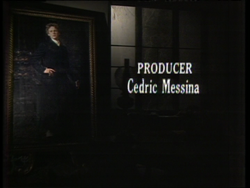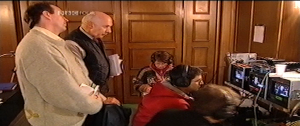by OLIVER WAKE
Peter Luke was a writer, story editor and producer on several of British television’s most influential drama anthology series, working at both ITV and the BBC, during a period of particular creative development for the medium. His television work was, however, only one part of a varied life.
Peter Ambrose Cyprian Luke was born on 12 August 1919, the son of British diplomatic Sir Harry Luke. The Luke family was originally of Hungarian descent (the name Lukach being Anglicised to Luke) and Luke’s upbringing was cosmopolitan. In his younger years he accompanied his parents on his father’s postings around the world, during which he learned about language, culture, art and literature, before returning to England to be enrolled at Eton. On completing his schooling with the minimum of academic rigour, Luke decided he wanted to become a painter and went to art school in London and then studied at the atelier of André Lhote in Paris. He enlisted in the British army shortly after the Second World War began, leading him to Egypt and combat on the first day of the second battle of El Alamein, in which he was wounded. After recovering he was deployed in the European theatre of war, serving in Italy, France and Germany. He was awarded the Military Cross for his actions in Normandy following D-Day. He ended the war a Major, acting Lieutenant-Colonel.



